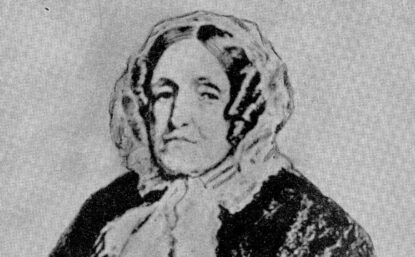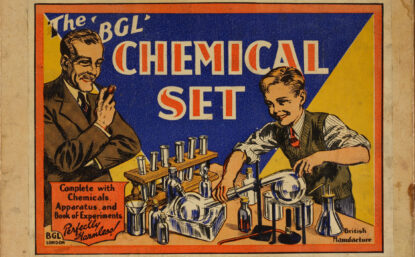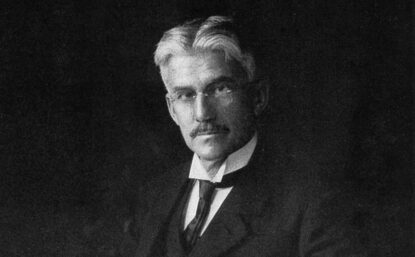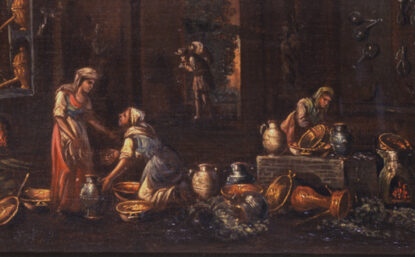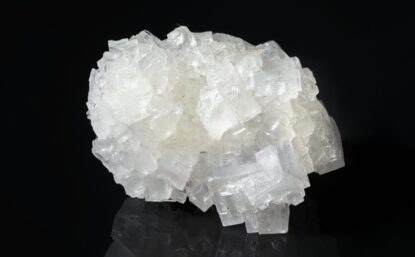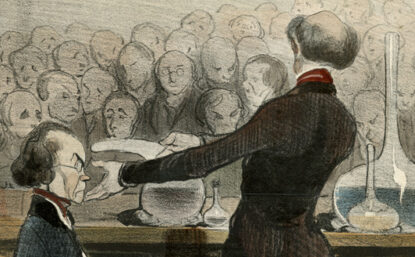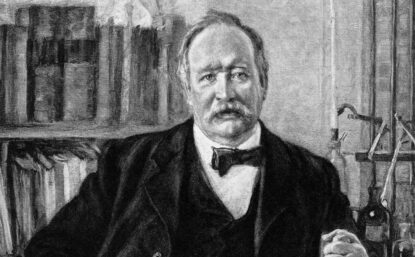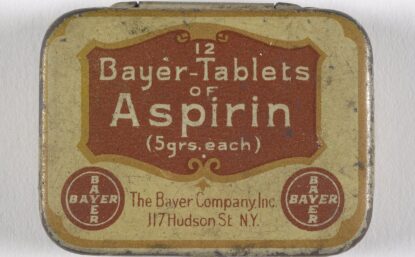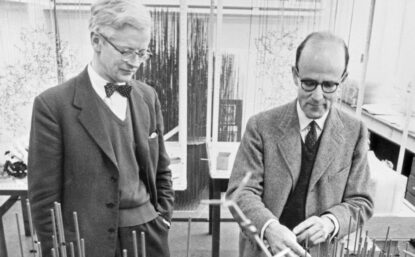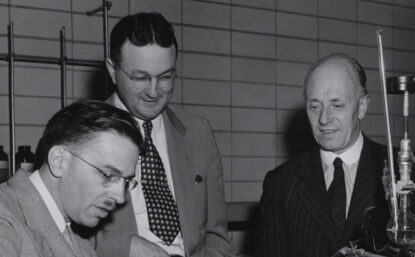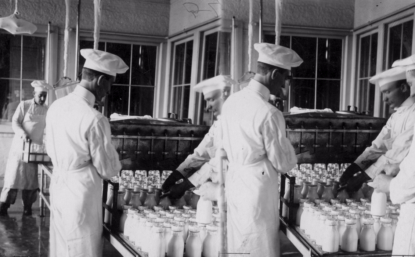Distillations magazine
A Game of Cat and Mouse
A predator stalks Marion Island, and it weighs less than an ounce. Scientists are racing to stop it.
Distillations articles reveal science’s powerful influence on our lives, past and present.
Mrs. Chemistry
When Jane Marcet wrote Conversations on Chemistry she had little idea it would introduce Michael Faraday into the world of science.
The Pursuit of Sweet
From lab accident to wonder drug to chemical has-been, saccharin’s history tracks the rise of consumer consciousness, government regulation, and the uncertainties underlying scientific evidence.
Soldier Sulfa
Prontosil Rubrum was the first drug to cure bacterial infections and the first of many sulfa drugs.
The Key to Good Taste
Eighteenth-century author Polycarpe Poncelet finds an unusual connection between music and our sense of taste.
Chemistry at Play
First sold in 1791 to a scientifically literate audience, chemistry sets have since occupied many niches—and now they are making a comeback.
The Man with a Fish on His Back
In the late 19th century cod-liver oil was proclaimed the cure for many ailments. One problem: the oil’s foul taste.
A Colorful Life
Color by numbers—no problem, thanks to Albert H. Munsell, who pioneered methods for color comparison.
Women’s Business: 17th-Century Female Pharmacists
Although many were skilled in making medicinal home remedies, only a few women ran their own apothecaries, competing with males for the right to prescribe medicines.
Bad Air
Malaria and the benefits and pitfalls of government-funded biomedical research.
Salt’s Fat Chance
Are salt alternatives scarier than the substance they are replacing? A brief history of a “terrifying” food.
Artificial Clouds and Inflammable Air: The Science and Spectacle of the First Balloon Flights, 1783
The first balloons, both hot-air and hydrogen powered, drew spectacular crowds and set off a craze—balloonomania!
Prefiguring the Arsenic Wars
An 1828 murder trial provides insight into the moral ambiguity of forensic science and scientific testimony.
Chemistry’s Outer Limits
Svante Arrhenius was one of the founders of modern physical chemistry. His later work cosmological work carried him beyond the scientific limits of many of his colleagues.
Amphetamine’s Missing History
David Healy reviews Nicholas Rasmussen’s On Speed: The Many Lives of Amphetamine.
Aspirin: Turn-of-the-Century Miracle Drug
Aspirin has had a long history as a pain reliever—2,000 years of history. But only in the 1970s did scientists begin to uncover its chemical secrets.
The Secret of Max Perutz’s Life
A personal portrait of the Nobel prize-winning crystallographer.
Understanding Pharmaceutical Relations and the Limits of Regulatory Reform
Interactions between the pharmaceutical industry, the biomedical sciences, and legislators is a longstanding hot topic in Washington.
The Lingering Heat over Pasteurized Milk
The history of pasteurization and the controversy surrounding it demonstrate the complexity of milk as a chemical substance.

